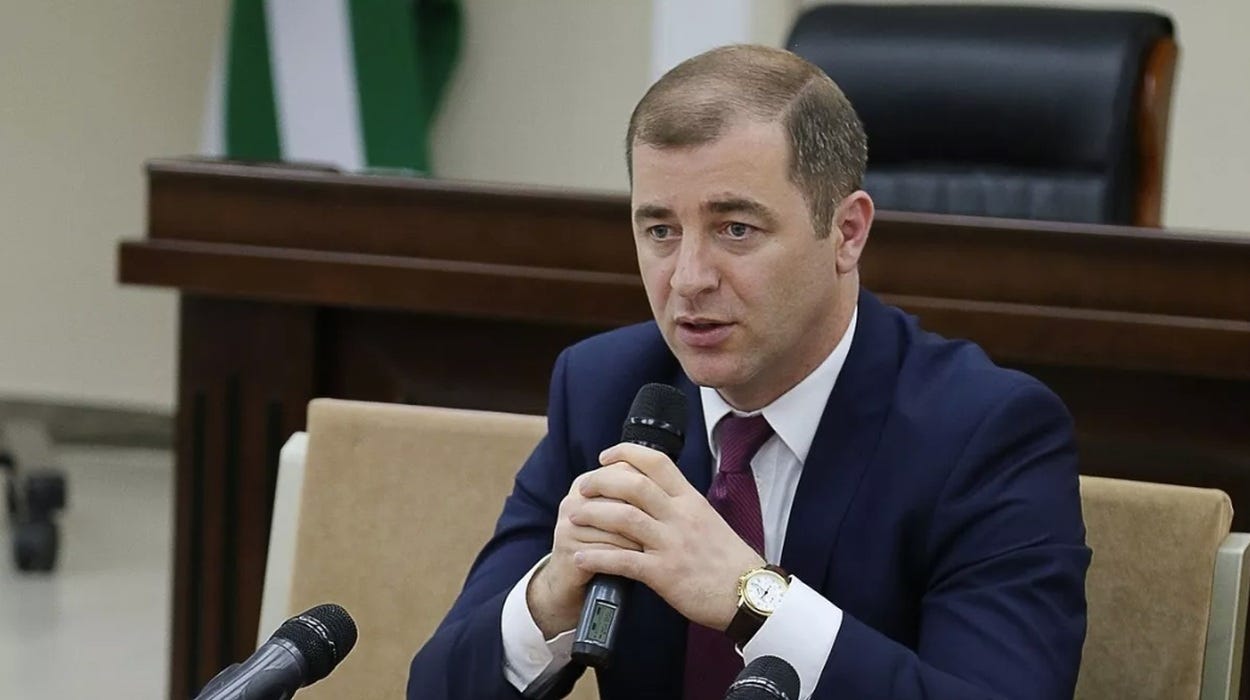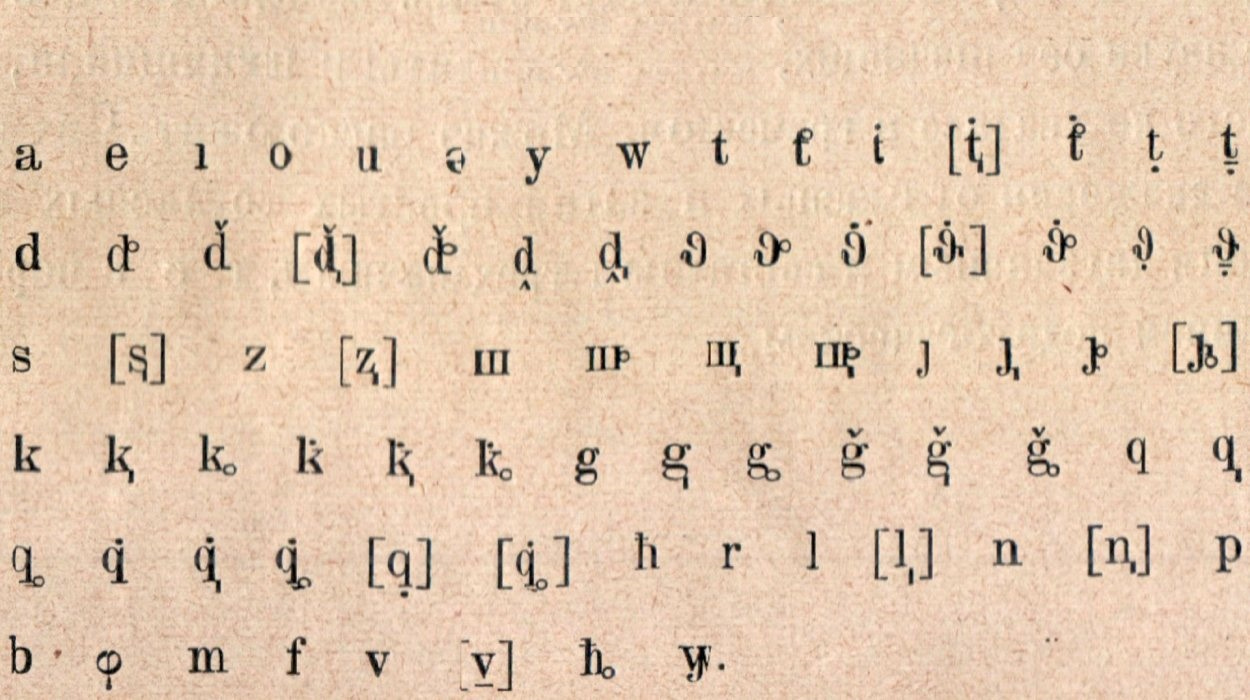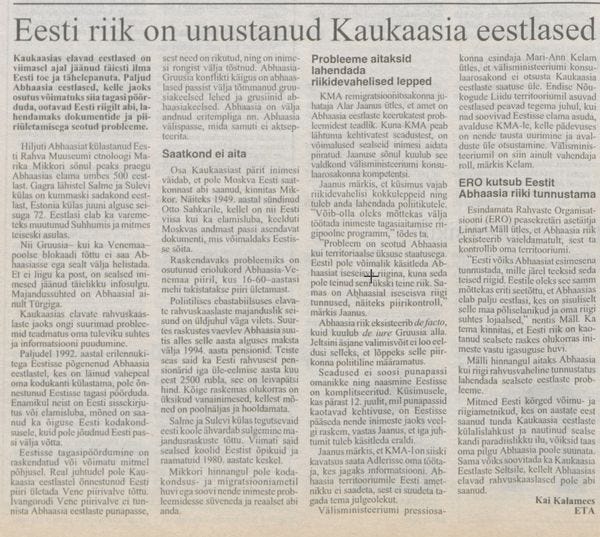Adgur Ardzinba: The deadline is on May 10th, and after that, as promised, we will announce the date for the rally.
AbkhazWorld Newsletter
It has been two weeks since the opposition issued an ultimatum for the Abkhazian government to resign. Adgur Ardzinba, leader of the Abkhazian People's Movement, discussed with "Ekho Kavkaza" the likelihood of meeting this demand and what the government's opponents plan to do if the resignation does not occur.
Adgur Ardzinba Outlines Roadmap to Overcome Political and Social Crisis
In the face of an acute social and political crisis, the leader of the Abkhaz People's Movement, Adgur Ardzinba, recently proposed a comprehensive four-step plan aimed at resolving the current turmoil and fostering unity among the nation's citizens. With a focus on collaboration, reform, and commitment, Ardzinba's proposal outlines a roadmap for overcoming stagnation in key state sectors and ensuring the successful development of the country.
See also:+ Aslan Bartsits: "People will see if deputies are capable of making such decisions"
Is Quoting Ardzinba, Iskander, Shinkuba Considered Vandalism?
Officers of the Internal Affairs Department in Sukhum detained representatives of the youth movement "ҲараҲПицунда" (Our Pitsunda) as they attempted to hang banners addressing pressing societal issues. Two of them were charged with Article 166 "Minor Hooliganism" for the unsanctioned nature of their actions, with a punishment of a 120 rubles fine. However, neither the human rights ombudsman's lawyer nor the public concur with this classification, deeming it inappropriate to equate expression of opinions with hooliganism.
See also:
+ Activists Detained for Displaying Protest Posters
+ Human Rights Commissioner Condemns Detention of Activists in Sukhum
New Monument Commemorating Russian-Caucasian War Exiles to Be Unveiled in Izmit, Turkey
May 21 marks the Day of Remembrance for the victims of the Russian-Caucasian War, observed in Abkhazia and countries with Abkhaz and Circassian diasporas. On this day, a monument dedicated to the mukhadzirs (exiles) will be unveiled in Izmit, Turkey, according to Ibrahim Avidzba, the Plenipotentiary Representative of Abkhazia in Turkey.
Avidzba confirmed that the monument has been completed and is set to be unveiled on May 21, with all necessary agreements in place. In preparation for the event, the Abkhazian representation in Turkey is organising commemorative activities. Invitations for the monument's opening have been extended to members of the People's Assembly and the Cabinet of Ministers.
From the History of Abkhaz Romanized Alphabets, by Viacheslav Chirikba
Eurasiatica 19 - April 2023 | Eurasian Studies Balkans, Anatolia, Iran, Caucasus and Central Asia Studies Notebooks | Venice University Press.
ABSTRACT
The article discusses the vicissitudes around the adoption of two versions of the Abkhaz alphabet based on the Latin script – the ‘analytical’ alphabet, proposed by Academician Nikolai Marr (adopted in 1926 and used until 1928), and the ‘unified alphabet’, which replaced Marr’s alphabet. Marr’s system was, in fact, nothing more than a phonetic transcription, complex and inconvenient even for linguists, and unfit for school and literary purposes, which motivated the Abkhaz authorities to opt for its radical reform. The new Romanized alphabet was introduced into school practice in 1929 and functioned until 1938. There is some controversy as to the authorship of this script. In later literature it was attributed to N. Yakovlev, but in reality those who were directly involved in the creation of the new alphabetical system were Y. Polivanov, S. Chanba and M. Khashba, though the latter two did consult with Yakovlev. The fact that both Polivanov and Chanba were executed during Stalinist purges may explain the silencing of their names. By the mid-1930s, the Soviet government had started replacing Latin scripts with Cyrillic-based ones, but with two notable exceptions: in 1938, the alphabets of the Abkhazians and South Ossetians were transferred into a Georgian graphic basis. It was only in 1954, after the death of Stalin, that the Abkhazians returned to their erstwhile Cyrillic alphabet.
The "Gagripsh" Restaurant
There are landmarks that become so strongly associated with the appearance of the place they are situated in that they are perceived as its symbol. This is the case with the "Gagripsh" restaurant in Gagra, Abkhazia, located on the coast of the Black Sea. To visit Gagra without stopping by "Gagripsh" means missing out on the opportunity to experience a truly iconic establishment in this resort town.
An excerpt from the Estonian newspaper 'Kodumaa' [Homeland] 6 July 1996.
Translation: "ERO [UNPO -ed] calls on Estonia to recognise the Abkhazian state. Linnart Mäll, deputy secretary-general of the Unrepresented Nations and Peoples Organization (ERO), said that the Abkhazian state undoubtedly exists, as it controls its own territory."
"Estonia could be the first to recognise Abkhazia, after which other countries would do the same. This step would be particularly meaningful for Estonia, especially because many Estonians live in Abkhazia, who are essentially the indigenous people of this land and loyal to their country," noted Mäll."
"He also confirmed that the Estonian state has lost all interest in the people living in difficult conditions there. According to Mäll, international recognition of Abkhazia as a state would help solve the problems of Estonians living there. Several high-ranking Estonian officials and civil servants who have experienced the hospitality of the Caucasus Estonians years ago and enjoyed the paradisiacal beauty of the region could once again turn their attention towards Abkhazia. The same could be recommended to the Society of Caucasus Estonians, who have not provided any help to their compatriots living in Abkhazia."
See also:
+ Correspondence between Abkhazia and UNPO (Linnart Mäll Archive)









